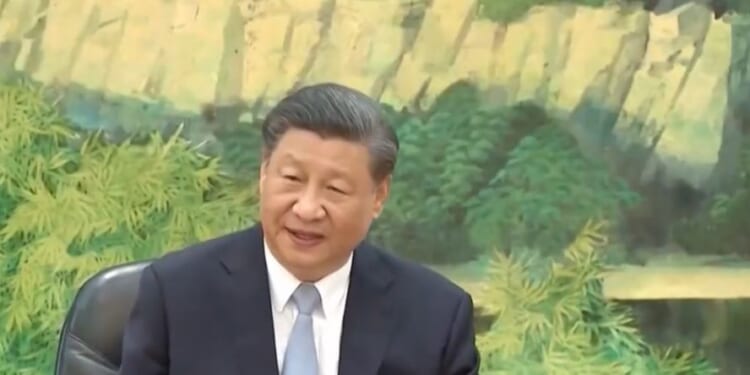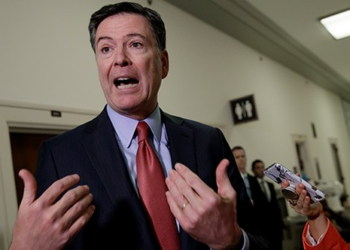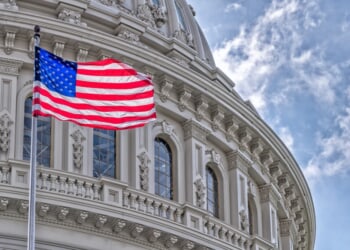Just ninety miles from Florida, China has begun its most audacious experiment in the West. On October 23, 2025, the Chinese Foreign Ministry reaffirmed that Beijing “firmly supports the Cuban people in safeguarding sovereignty and dignity, and in opposing external interference and the blockade.” In Beijing’s language, “sovereignty” now means the right to wire, watch, and instruct the island into alignment. Cuba is no longer merely friendly with China, it is being rebuilt in its image.
Havana is only the first link. In 2025, Beijing expanded its infrastructure footprint in Jamaica, Antigua, and the Dominican Republic.
The evidence is visible from orbit. Between 2024 and 2025, analysts at the Center for Strategic and International Studies reported in China’s Intelligence Footprint in Cuba that four Chinese-linked listening posts ,Bejucal, Wajay, Calabazar, and El Salao – had expanded dramatically. At the same time, Newsweek published satellite imagery revealing a 175-metre antenna ring at Bejucal — a precision-engineered ear capable of intercepting high-frequency radio across the American Southeast. At El Salao, forty miles from Guantánamo Bay, a companion array rose beside Chinese-funded industrial projects. The pairing was no accident: industry hides the intelligence.
U.S. officials confirm that China “has access to intelligence facilities on the island.” Technicians from Huawei and ZTE have been seen entering restricted zones. They are not fixing phone masts; they are extending Beijing’s listening range. In 1962, Cuba threatened the United States with Soviet missiles. In 2025, it does so with Chinese receivers.
If Bejucal listens, ETECSA, Cuba’s state telecom monopoly — transmits. Its routers, towers, and switching systems are Chinese-made, and Huawei’s eSight software manages connectivity and censorship alike. During the 2024 protests, the government throttled the internet within hours. By this year, more than 80 per cent of the island’s digital backbone was Chinese-built, Western analysts say. Every Cuban message now travels through Beijing’s circuitry.
The partnership was formalized under a 2023 “Cyber Sovereignty” agreement that Beijing said would “safeguard information integrity.” In practice, it imported China’s firewall logic, surveillance, shutdown, control. For Cuban dissidents, every post or call now passes through Beijing’s algorithm of obedience.
In August 2025, China’s spy chief Chen Yixin hosted Cuba’s Interior Minister in Beijing and pledged deeper “intelligence sharing and security cooperation.” Weeks later, Xi Jinping and Miguel Díaz-Canel declared a “community with a shared future.” By October, Granma, the Communist Party’s paper, reported that a delegation from China’s Communist Party History Museum had arrived in Havana to study “the history of their revolutions and communist parties.” Intelligence at the top, doctrine in the middle, ideology at the base: a complete ecosystem of control. For the first time in the Western Hemisphere, China’s Ministry of State Security is effectively working through a partner ministry.
Control endures longest when it educates. Since 2024, the Confucius Institute Havana has expanded into provincial universities, teaching Mandarin alongside “Chinese governance and development theory.” In May 2025, the China–Cuba University Consortium linked Havana’s leading faculties with Beijing Normal University and the Central Party School for seminars in “Marxism-Leninism with Chinese characteristics.” Dozens of Cuban students now train in China in joint programmes blending artificial intelligence and political ideology. They return not as translators but as administrators of a new system. The classroom, once Soviet in accent, now speaks fluent Beijing.
Propaganda follows infrastructure. In October, Granma echoed the tone of the Global Times: a “shared revolutionary destiny” defying “U.S. coercion.” Cultural exchanges, journalism courses, and museum collaborations replay the same script, Cuba the noble victim, China its faithful defender. Beijing doesn’t bankroll Havana’s narrative; it ghostwrites it. Solidarity has become authorship.
Money secures the manuscript. With Russia drained and Venezuela bankrupt, China has become Havana’s banker and builder. As Reuters reported in June 2025, Beijing pledged $7 billion in new infrastructure and energy projects across Cuba and the wider Caribbean. Fifty-five solar parks are under construction; Chinese cargo ships unload steel, panels, and telecom hardware at Mariel and Santiago. Each delivery powers Cuba’s grid by day, and China’s influence by night. Ports modernized with Chinese funds can receive Chinese vessels. Networks financed with Chinese loans transmit Chinese data. Dependency is not collateral damage; it’s the goal.
Havana is only the first link. In 2025, Beijing expanded its infrastructure footprint in Jamaica, Antigua, and the Dominican Republic, building ports, laying 5G cables and training security forces. Confucius Institutes now dot the region under the euphemism of “South-South cooperation.” The pattern repeats: build, train, integrate. Aid by day; access by night. The Caribbean is becoming China’s warm-water classroom — and, when required, its forward operating system.
For now, Washington is watching more than acting. Donald J. Trump, back in the White House since January, has promised to “stand up to China,” but 90 miles from Florida, Beijing isn’t listening. While the administration tweets resolve, China is building facts on the waterline. The silence, in effect, is policy.
Thread it together: new antennas at Bejucal, a half-built array at El Salao, Huawei’s cyber spine, Chen Yixin’s August pact, the October Party-history mission, billions in dual-use investments and universities exporting ideology.
This isn’t cooperation; it’s conversion. Cuba’s systems now speak in Beijing’s dialect. The transformation has unfolded in plain view — and almost within America’s sightline.
This is not solidarity; it is statecraft. Not friendship, but franchising. Beijing has built more than bases and businesses in Cuba — it has drafted a new manual for influence within sight of U.S. shores. What is emerging across the Straits of Florida is not a fortress but a reflection — and that reflection is unmistakably Beijing’s.
READ MORE from Kevin Cohen:
Germany Revoked a Terror Supporter’s Citizenship. Why Can’t America?


![Scott Bessent Explains The Big Picture Everyone is Missing During the Shutdown [WATCH]](https://www.right2024.com/wp-content/uploads/2025/11/Scott-Bessent-Explains-The-Big-Picture-Everyone-is-Missing-During-350x250.jpg)














